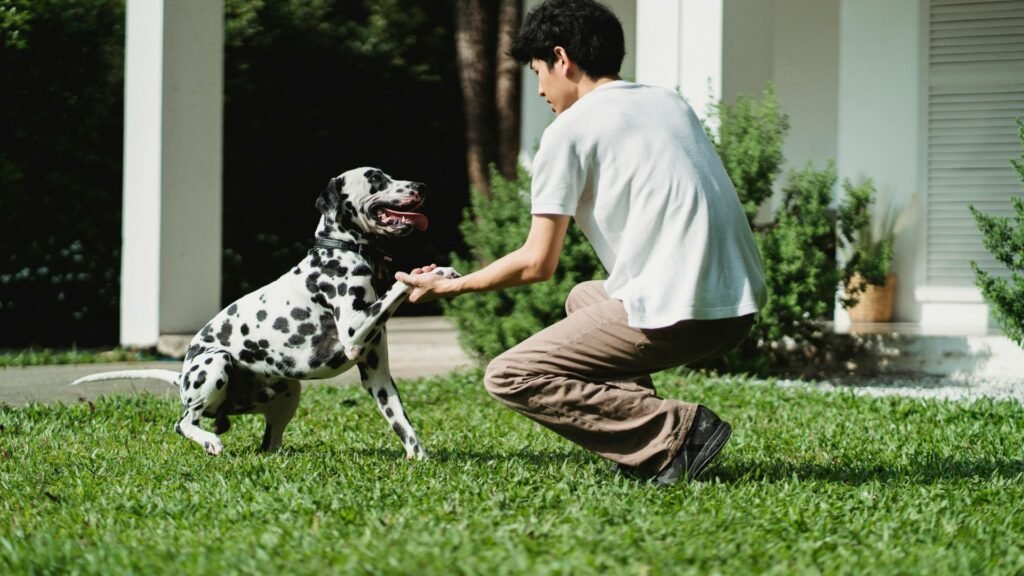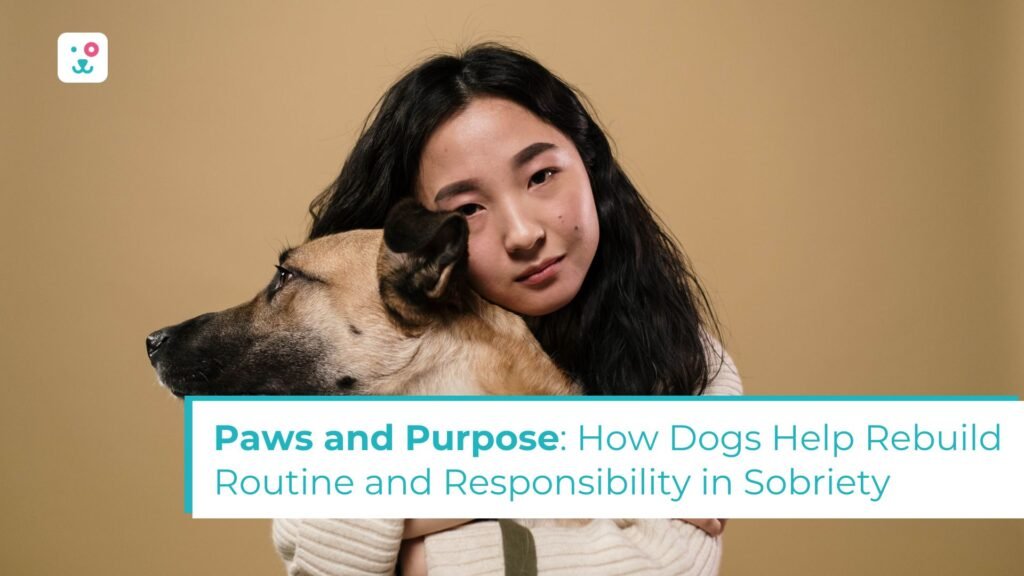Dogs and Sobriety is not just about staying clean—it’s about rebuilding a life. After addiction, days can feel both overwhelming and empty. The structure that once revolved around a substance is suddenly gone, and many in recovery are left asking: What now?
One unexpected but powerful answer? A dog.
The companionship of a dog doesn’t just offer emotional support—it introduces structure, accountability, and purpose back into daily life.
For those in recovery, this can mean the difference between surviving and truly thriving. Let’s explore how dogs help people rebuild routine and responsibility in sobriety—and why that bond can be so transformative.
1. Rebuilding Daily Structure
Recovery demands consistency. But for many, addiction has stripped away the natural rhythms of everyday life. Dogs, however, thrive on routine—and they expect the same from their humans.
- Feeding times
- Bathroom breaks
- Walks and exercise
- Playtime
- Bedtime routines
This structured schedule helps individuals in recovery create a dependable daily flow. Over time, this consistency doesn’t just help the dog—it stabilizes the person caring for them.
When you’re responsible for another living being, you begin to rebuild your own day-to-day existence.

2. Creating Accountability
Sobriety is full of moments where it’s easy to withdraw or let things slip. Depression, cravings, or fatigue can all make it tempting to stay in bed or avoid responsibilities. A dog doesn’t allow that.
They nudge, bark, paw, or whine—not out of annoyance, but out of need. And in meeting their needs, people begin to show up in ways they didn’t think they could anymore.
This external accountability can be a powerful motivator. You might not always show up for yourself, but you’ll show up for your dog—and that’s how habits begin to change.
3. Building Purpose and Self-Worth
One of the deepest wounds of addiction is the erosion of self-worth. Many in recovery struggle with guilt, shame, and a sense of being “broken.”
Dogs don’t see any of that. They see love, connection, and care. And they need their person.
The simple fact that someone is showing up to walk, feed, and comfort their dog every day reinforces the message: “I am capable. I matter. I can be trusted.”
That’s not a small thing. For many, that’s where healing truly begins.
4. Teaching Patience and Emotional Regulation
Sobriety tests patience. Triggers, stress, and mood swings are common. Dogs, with their own quirks and challenges, require calm, measured responses. They may chew a shoe, have an accident indoors, or bark too much—but they also teach us to take a breath, respond with understanding, and regulate emotions.
This transfer of emotional skills is invaluable in recovery. Learning to care for a dog means practicing the same emotional tools needed to care for oneself.
Also Read: How Dogs Help Combat Anxiety and Depression in Recovery
5. Reducing Isolation and Encouraging Socialization
Sobriety can be lonely, especially when past social circles revolved around substances. Dogs serve as social bridges, encouraging interaction in ways that feel natural and safe.
- A walk in the park sparks conversations with fellow dog owners.
- Puppy training classes build community and structure.
- Sharing your dog’s story (often a rescue themselves) opens hearts.
These moments of connection help reduce the isolation that fuels relapse and restore a sense of belonging in the world.
6. Providing a Healthy Outlet for Love and Nurturing
Recovery can stir up intense emotional needs—love, connection, touch. Dogs offer a place to channel these emotions safely and consistently.
You can hug them without fear.
Talk to them without judgment.
Cry beside them without shame.
This emotional outlet helps people process feelings that might otherwise overwhelm them. In loving their dog, many learn how to love again—starting with themselves.

7. Promoting Physical Activity and Health
Physical health is often neglected in addiction. Dogs bring movement back into the picture. Whether it’s short walks or active play, their need for exercise encourages people in recovery to move their bodies, get outdoors, and improve their overall health.
This renewed focus on health can ripple into other areas—better sleep, improved appetite, and a more grounded mental state.
8. Fostering Long-Term Commitment
Caring for a dog is a long-term commitment—something that mirrors the journey of sobriety. There are no shortcuts. There are good days and tough days. But you keep showing up.
By taking responsibility for a dog, people begin to reframe their view of commitment—not as something intimidating, but as something life-giving.
Real Stories of Dogs and Sobriety
- Alex, a recovering heroin addict, credits his rescue dog with helping him stay clean. “She gave me a reason to wake up every day. I didn’t feel worthy of recovery, but I felt worthy of her.”
- Maria, recovering from use disorder, said: “My dog didn’t judge me. When I couldn’t take care of myself, I took care of him. And that started to heal me.”
Final Thoughts: A Paw in the Right Direction
dogs and Sobriety is a journey of rebuilding—and dogs walk that journey with unmatched loyalty. Through routine, responsibility, and unconditional love, they help restore what addiction tried to take away: structure, purpose, connection, and hope.
For anyone in recovery, adopting a dog isn’t just about companionship. It’s about rediscovering what it means to live—and to love—on purpose.

